Overview
Then, with 12 local accounts, Airwallex offers the most on the market. Although, Payoneer does offer local accounts in UAE dirham, which Airwallex does not. So, those in need of access to the Emirates could benefit from using Payoneer.
.png)
🏆 Airwallex | Payoneer | |
|---|---|---|
Monthly Fee | No monthly fees | No monthly fees |
Exchange Rate | from 0.5% | around 2% |
Transfer Fees | No fees | Up to 3% |
Multi-Currency Access | 12 local accounts | 9 local accounts |
*$29 dollar annual fee for inactive accounts
Platform details
Local accounts are a key area to consider with a multi-currency business platform. The more local accounts you have, the greater access to currency you have. This can reduce the cost sending money and managing international expenses. It also reduces currency risk.
Many accounts offer additional IBAN accounts. As an example outside of these two provides, Sokin comes with 4 local accounts but an additional access of 40 IBAN accounts.
Local accounts
Airwallex has a greater range of accounts, but also more access in certain locations. For example, in the EU, for Euro accounts, Airwallex comes with an IBAN and a Swift code. Payoneer has just an IBAN.
Currency and Country | 🏆 Airwallex local accounts | Payoneer local accounts |
|---|---|---|
AUD: Australia | Account number and BSB code | Account number and BSB code |
CAD: Canada | Account number, Transit number, Bank number | Account number, Transit number, Institution number |
DKK: Denmark | Account number, SWIFT code, and IBAN | Not available |
EUR: EU | IBAN, SWIFT Code | IBAN only |
HKD: Hong Kong | Account number, Bank code, SWIFT code | Routing number and account number |
IND: Indonesia | Account number | Not available |
JPY: Japan | Account number, Bank code | IBAN account |
NZD: New Zealand | Account number, Bank code, Branch code | Not available |
PLN: Poland | Account number, SWIFT code, IBAN | Not available |
SGD: Singapore | Account number, Bank Code, SWIFT Code | IBAN account |
AED: United Arab Emirates | Not available | Bank name, IBAN |
GBP: United Kingdom | Account number, IBAN, Sort code | UK sort code, account number, and IBAN |
USD: United States | Account number, ACH routing number, Fedwire routing number, SWIFT code | Routing number and account number |
Other features
When choosing between Payoneer or Airwallex, there's also some additional features to consider. The need of these will be specific to a business, but worth considering.
These can include batch payments and receiving cross border payments.
Features | 🏆 Airwallex | Payoneer |
|---|---|---|
Batch payments | 1,000 per transaction | 1,000 per transaction |
Expense management and tracking | Custom workflows for teams, budgets, cards and employees. Access can be given and accounts synced by type | Card segmentation available |
Pay invoices | Invoice management, including tagging per type | Pay suppliers and freelancers through linked invoices |
Receive Payments | Can be used as a payment gateway. Payment link creation option | Invoice building and payment links |
Marketplace integration | Amazon, Upwork, WooCommerce, Shopify, and Magento + More | Amazon, Upwork, Etsy + more - up to 2,000 |
API options | Use the API calls to automate regular tasks and action things like multi-currency cards in bulk | API can be used for automation of tasks |
Making and receiving cross border payments
Here, we've compared the key costs you can expect when choosing between Airwallex or Payoneer.
Sending money
For sending cross border payments, Airwallex has a lower starting point of 0.5%. They usually charge below 1%.
Payoneer is more expensive than Airwallex with exchange rates starting from 0.7%. These hit highs of up to 2%.
With Payoneer, there's also a fee of up to 3% that will need to be paid. For comparison, Airwallex does not have a fee associated with it.
Fee Type | 🏆 Airwallex | Payoneer |
|---|---|---|
Domestic Transfers | Free or minimal fee | Free within Payoneer network; fees apply otherwise |
International Transfers | Low fees plus small FX margin | Variable fees plus FX margin |
Currency Conversion Fee | 0.5% above interbank rate for major currencies1% for exotic currencies | Up to 2% above interbank rate |
Withdrawal to Bank Account | Free | Fees may apply depending on currency and country |
Card Spending (No Conversion) | No cost | No cost |
Card Spending (With Conversion) | From 0.5% | Up to 3.5% |
Receiving money
Airwallex is better than Payoneer for receiving cross border payments. Notably, Payoneer charges up to 1% for any currency received. Airwallex will charge nothing for payments received into local accounts or support currencies. For anything that is not supported, they will charge the exchange rate. Like sending money, this could be up to 1%.
Fee Type | 🏆 Airwallex | Payoneer |
|---|---|---|
Receiving Funds (Domestic) | Free | Free |
Receiving Funds (International) | Free for supported currencies | Variable fees, typically up to 1% depending on the method |
** Currency Conversion Fee | 0.5% above interbank rate for major currencies, 1% for exotic currencies | Up to 2% above interbank rate |
Card use
Using a card is possible with both Payoneer and Airwallex. Costs are similar with to sending cross border payments.
One key difference is Airwallex does not offer ATM access, with Payoneer charging in $3.15 / €2.50 / £1.95 for using a machine. Generally, with any multi-currency business account we'd recommend avoiding any ATM use. Costs are in effect cash advances, so you'll always pay a premium to access the cash.
Feature | 🏆 Airwallex | Payoneer |
|---|---|---|
Offered | Yes | Yes |
Monthly Fee | $5 per active cardholder per month | $0 |
Annual Fee | $0 | $29.99 |
Initial Card Fee | $0 | $0 |
Additional Card Fee | $0 | $0 |
Replacement Card Fee | $0 | $12.95 |
Spending (No Conversion) | No cost | No cost |
Spending (With Conversion) | From 1% | Up to 3.5% |
Spending Limits (Daily) | $5 million | $200,000 daily |
ATM Fees | No access | $3.15 / €2.50 / £1.95 |
Expense Management | Yes, sync different cards to specific people | Yes, sync different cards to specific people |
Restrictions | [No specific restrictions mentioned] | Cards only issued in USD, CAD, EUR, and GBP |
Platform and API
Both Airwallex and Payoneer offer API access with a solid offering. The big difference is really what you want to do with this access. In terms of core offering, Airwallex covers more bases than Payoneer.
Overview
Aspect | 🏆 Airwallex | Payoneer |
|---|---|---|
API Overview | The Airwallex API is an end-to-end platform. The stand out element is automation and syncing of any aspect of your finances in one place. | The focus of the Payoneer API is on making regular, or batches of payments, easier. There's no support however for actions like issuing cards, or mass payment acceptance. Both of these are available with Airwallex. |
Multi-currency accounts | Manage multi-currency business accounts., open and close accounts as needed. Automate processes for retrieving balances and transaction history. Setup and manage statements within the account. | Manage account details of regular recipients. View transactions, balances and spending by card or tag. Automate and manage mass and batch payments across all of the support currencies |
Webhooks & Notifications | Use webhooks to send notifications in real time on things like FX rates, transactions and ATM use. These can be customized to send to specific users, or teams. | Notifications on payment status, confirmations, failures account changes, and other events. |
Authentication & Security | Token based authentication. Security includes HTTPS encryption, OAuth 2.0 support, IP whitelisting. PCI DSS compliance, regulated in multiple countries, including the UK and USA. | API keys and tokens for secure access. HTTPS encrypted API, fraud detection, compliance across multiple territories |
Developer Resources | Detailed API docs with code examples, SDKs, sandbox and dedicated tech support are all offered. | API documented with integration guides, SDKs in across different programming languages, Sandbox available, NOTE: Developer support through email and forums only |
Supported Platforms | RESTful API endpoints, JSON payloads. Works with ERP and financial platforms like Xero and Quickbooks. Offers SDKs for mobile app integration should this be part of either an in-business or white label offering. | RESTful API endpoints, JSON payloads. Can be used with various ERP and financial systems Limited support for mobile. |
Use Cases |
|
|
Payments and foreign exchange
Aspect | 🏆 Airwallex | Payoneer |
|---|---|---|
Payments | Manage domestic and international payments. Supports bank transfers, debit cards, and alternative payment methods Batch and scheduled payment support. Real time FX rates and currency conversion | Send mass payments through supported payment methods like bank transfers, prepaid cards, e-wallets. Automated currency conversions, and FX rate tracking. |
Card issuing
Aspect | 🏆 Airwallex | Payoneer |
|---|---|---|
Card Issuing | Issue and manage virtual and physical payment cards. Set controls on spending and limits. | Not available |
Choosing a winner
As we've said, Airwallex is our winner. This is based on:
Airwallex offering 12 local accounts vs the 7 you can access through Payoneer
Airwallex having exchange rates starting from 0.5%, and usually being below 1%. Payoneer starts at 0.7% and highs of 2%
Airwallex has no fees for sending money, whereas Payoneer has fees of up to 3%
Airwallex offers an API platform that covers more areas than Payoneer


.png)








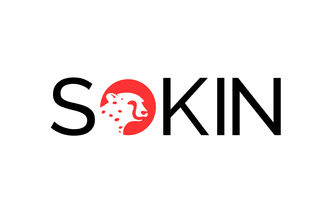
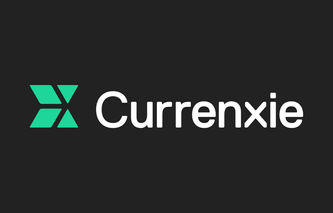
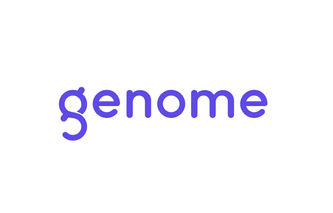
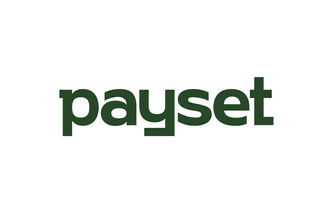
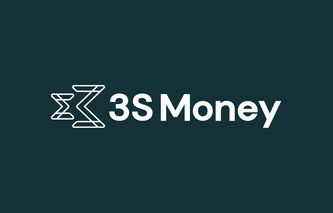
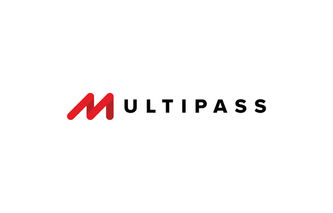
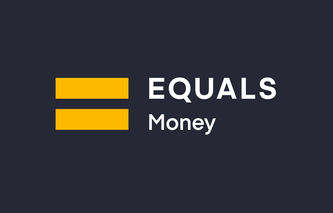
.png)


.png)

.png)
.png)
.png)
.png)
.png)